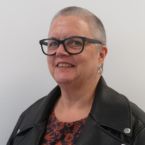
Earlier this month, I had the privilege of attending the Inclusion Health Summit organised by Cymorth Cymru, the representative body for homelessness and support services in Wales. This summit, which took place in Cardiff, was a significant event that brought together stakeholders - including RCN Wales - involved in developing the framework for education and training needs for staff working in exclusion services.
The summit provided a platform for professionals working with some of the most vulnerable people in our society - those excluded from public services such as health care. Accessing health services without a permanent address is nearly impossible, often forcing individuals to rely on emergency services. This reactive approach means that conditions escalate and are not managed proactively.
Barriers to health care access
The summit highlighted the struggles faced by various groups, including the homeless, those coming from prison, newly arrived immigrants, sex workers, asylum seekers, the traveller community and care leavers. Significant barriers to accessing health care include:
• lack of a permanent address – registering at a general practice (GP) surgery without one is impossible
• dependence on public transport, which is often non-existent in certain areas, making it difficult to attend appointments
• financial constraints – the cost of alternative transport options is often prohibitive.
Innovative solutions and collaborative efforts
We heard from nursing staff, doctors and social care staff across Wales who are addressing these access issues. For instance, a prison in north Wales ensures that individuals leaving have a seven-day supply of their prescribed medicines and facilitates their registration with a GP and a pharmacy. This proactive approach has reduced emergency department visits by those recently released from prison.
In Cardiff, a similar project has shown a decrease in emergency department visits by the homeless and those discharged from prisons. Another initiative involves GP nurses advocating for longer appointment times for homeless individuals, acknowledging the challenges they face in arriving on time due to transport issues. This has led to improved attendance rates.
Reducing stigma and promoting equity
A key theme of the summit was the importance of reducing stigma. For example, referring to individuals with addictions as "drug using" or "alcohol using" rather than "drug abusers" or "alcohol abusers" can significantly impact how they are perceived and treated. Reducing stigma facilitates a more proactive approach to care.
As the day concluded, we were reminded that it might be time to reconsider how public services, including health care, are made available to all. An equitable approach requires rethinking many aspects of our work. Many of the solutions presented were cost-neutral, emphasising that existing funding should be shared with these vulnerable groups as they are integral parts of our communities.
This event was a powerful reminder of the challenges faced by vulnerable populations and the innovative solutions being implemented to address these issues. By working together and advocating for equitable access to healthcare, we can make a significant difference in the lives of those who need it most.


 Share on LinkedIn
Share on LinkedIn




